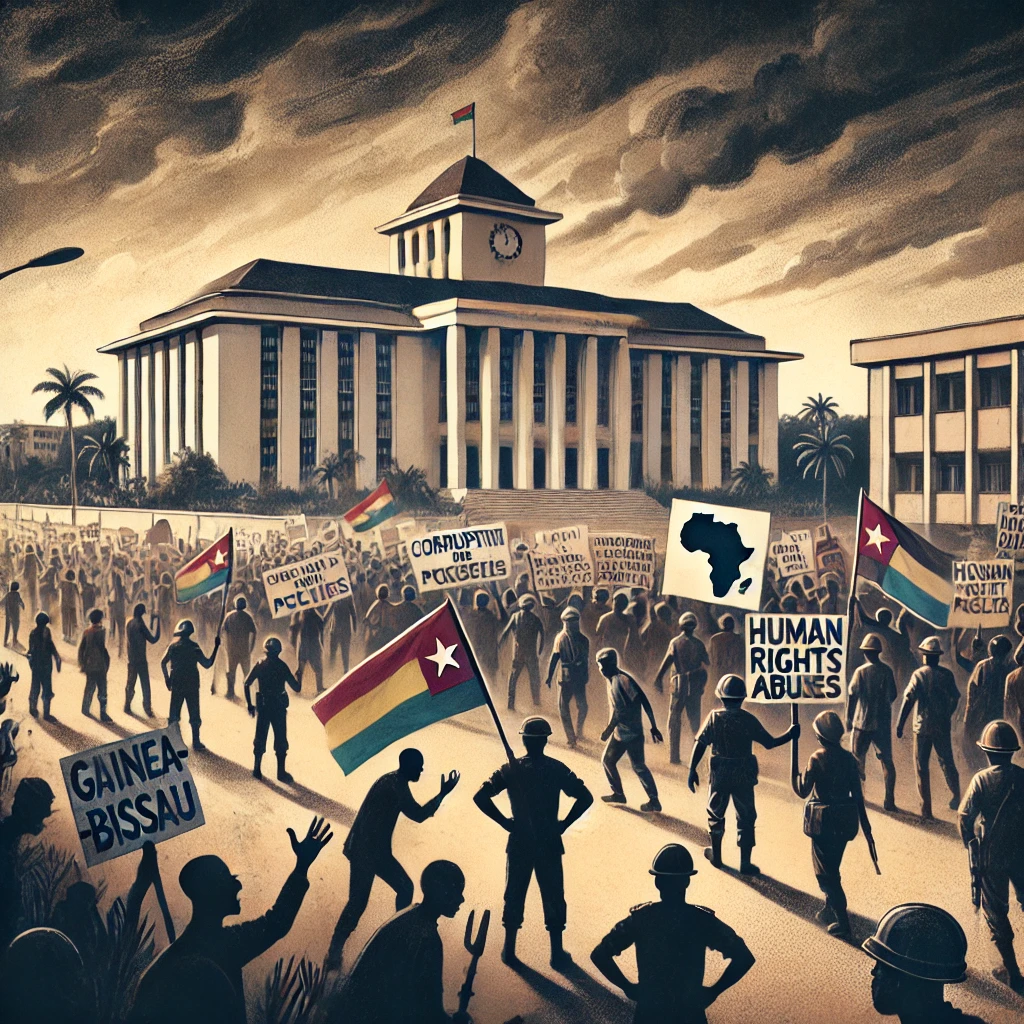Political Tensions Rise in Guinea-Bissau Amid Corruption Allegations
August 19, 2024 - Political tensions are escalating in Guinea-Bissau as opposition groups accuse the government of corruption and human rights abuses. The small West African nation, long plagued by political instability, is now facing a renewed crisis that threatens to further destabilize the country.
Opposition's Allegations and Government Response
Opposition leaders claim that the current administration, led by President Umaro Sissoco Embaló, has engaged in widespread corruption, misusing public funds and manipulating state resources for personal gain. These allegations have sparked protests in the capital, Bissau, with demonstrators demanding greater transparency and accountability from the government.

Human rights organizations have also raised concerns about the government's response to dissent. Reports indicate that security forces have been used to suppress opposition activities, leading to clashes between protesters and law enforcement. Several opposition figures have been detained, raising fears of a crackdown on political freedoms.
For further details, see reports from Amnesty International and Al Jazeera.
Historical Context and Regional Implications
Guinea-Bissau has a long history of political instability, with frequent coups and military interventions disrupting the democratic process. The current crisis is rooted in decades of governance challenges, including corruption, poverty, and weak institutions. The country's political volatility has made it difficult to achieve sustained economic growth and social development.
The escalating tensions in Guinea-Bissau could have broader implications for the West African region. The Economic Community of West African States (ECOWAS) has previously intervened in Guinea-Bissau to mediate conflicts, and there are concerns that the current situation could lead to further regional instability. Neighboring countries are closely monitoring the situation, wary of potential spillover effects that could impact their own political landscapes.
International Reaction and Call for Dialogue
The international community is expressing growing concern over the situation in Guinea-Bissau. Several Western nations and international organizations have called for dialogue between the government and opposition to resolve the crisis peacefully. There are also calls for an independent investigation into the corruption allegations and human rights abuses to restore trust in the political process.
Diplomatic efforts are underway to mediate between the conflicting parties, with the aim of preventing the situation from escalating into violence. However, the path to reconciliation remains uncertain, with both sides showing little willingness to compromise.
Conclusion
The political tensions in Guinea-Bissau are a critical issue that threatens the country's stability and democratic progress. As opposition groups continue to challenge the government's actions, the international community's role in facilitating dialogue and ensuring accountability will be crucial. The coming weeks and months will be decisive in determining whether Guinea-Bissau can navigate this crisis peacefully or if it will descend into further turmoil.
